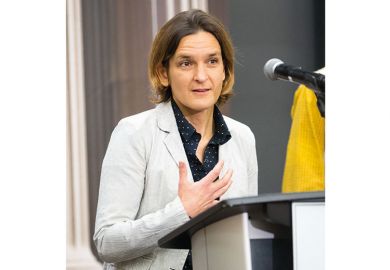Economics departments at UK universities are “moving backwards” on gender diversity with the proportion of women taking the subject falling in recent years, new research shows.
According to a new study by the Royal Economic Society, women accounted for just 27 per cent of economics undergraduates in 2018-19, down from 31 per cent in 2002.
At master’s level, the proportion fell from 37 per cent in 2002 to 31 per cent in 2018-19, says the society’s Gender Imbalance in UK Economics report, published on 13 July.
The decline comes despite modest improvements in the staff gender balance in UK economics departments, albeit from a similarly low level: some 26 per cent of academic economists were women in 2108-19, up from 18 per cent in 1996, though this improvement was mostly achieved prior to 2012 after which progress has slowed, the report says.
Among academic economists in the UK, women comprise 33 per cent of lecturers, 27 per cent of senior lecturers or readers and 15 per cent of professors.
According to the society’s data, no black female professor of economics was employed anywhere in the UK for the entire period from 2012 to 2019.
Victoria Bateman, who co-authored the report, said the disparities were concerning because “those studying and researching the economy are unrepresentative of wider society”.
“While there have been noticeable improvements over the last quarter of a century, our evidence of stagnation and retreat shows that the gender gap isn’t about to close anytime soon – and, if anything, is set to get worse,” said Dr Bateman, an economics fellow at Gonville and Caius College, Cambridge.
Almudena Sevilla, professor in economics and public policy at UCL and chair of the society’s women’s committee, added that female representation in economics departments “remains low and stubbornly flat in the UK and the US” with “little change [happening] over the last two decades”.
“Equality does not happen on its own,” added Professor Sevilla, who commended the Athena Swan Charter initiative as “an example of the sort of programme that is needed to support and transform equality and diversity in the academic sector”.
Register to continue
Why register?
- Registration is free and only takes a moment
- Once registered, you can read 3 articles a month
- Sign up for our newsletter
Subscribe
Or subscribe for unlimited access to:
- Unlimited access to news, views, insights & reviews
- Digital editions
- Digital access to THE’s university and college rankings analysis
Already registered or a current subscriber?








